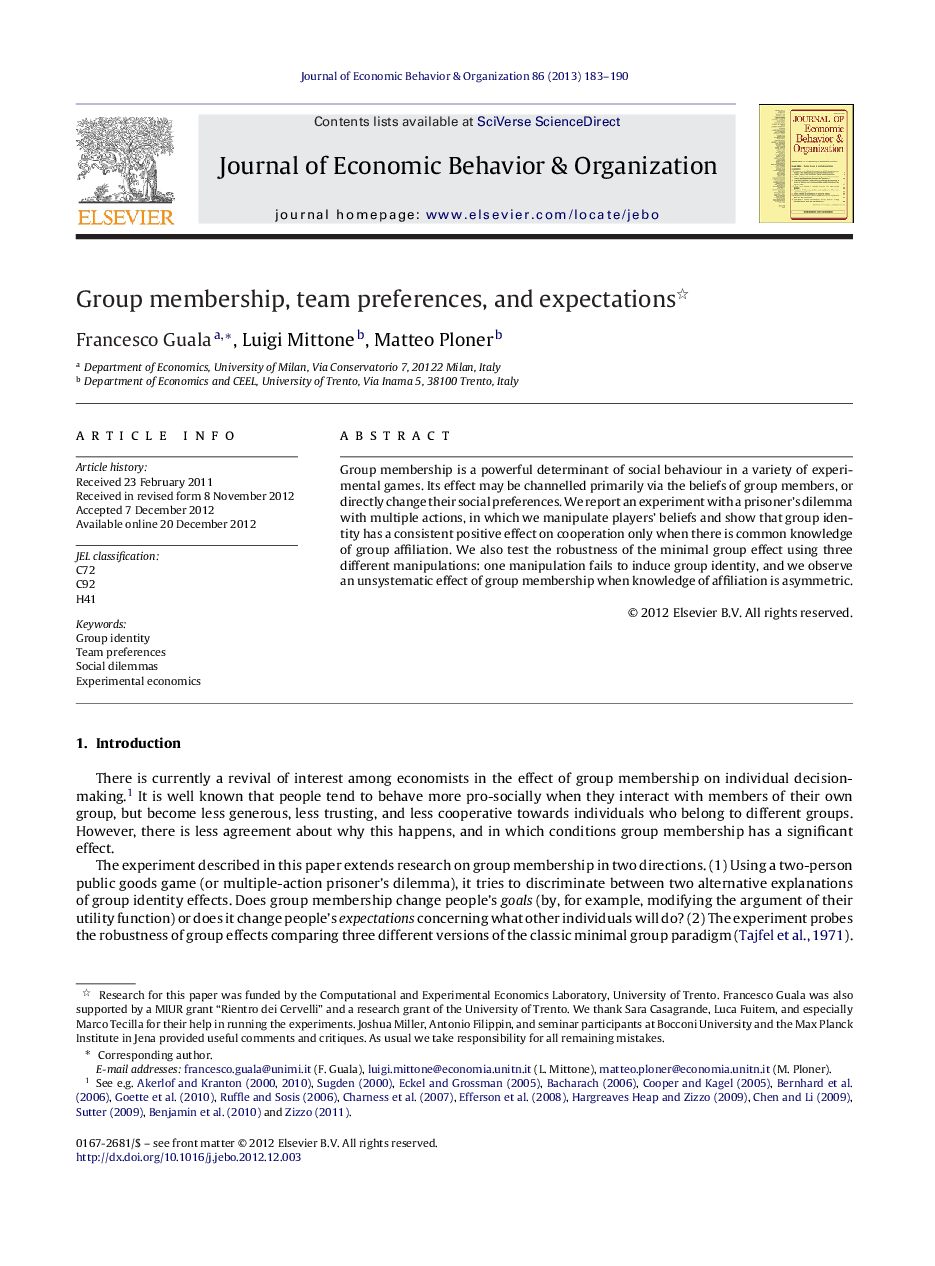| کد مقاله | کد نشریه | سال انتشار | مقاله انگلیسی | نسخه تمام متن |
|---|---|---|---|---|
| 883669 | 1471677 | 2013 | 8 صفحه PDF | دانلود رایگان |

Group membership is a powerful determinant of social behaviour in a variety of experimental games. Its effect may be channelled primarily via the beliefs of group members, or directly change their social preferences. We report an experiment with a prisoner's dilemma with multiple actions, in which we manipulate players’ beliefs and show that group identity has a consistent positive effect on cooperation only when there is common knowledge of group affiliation. We also test the robustness of the minimal group effect using three different manipulations: one manipulation fails to induce group identity, and we observe an unsystematic effect of group membership when knowledge of affiliation is asymmetric.
► Investigates empirically the role of expectations in group identity effects.
► Manipulates beliefs by providing asymmetric knowledge of group affiliation.
► Shows that group framing requires common knowledge of group affiliation.
► Group identity influences primarily beliefs rather than preferences.
► Group identity effects are fragile with asymmetric information.
Journal: Journal of Economic Behavior & Organization - Volume 86, February 2013, Pages 183–190